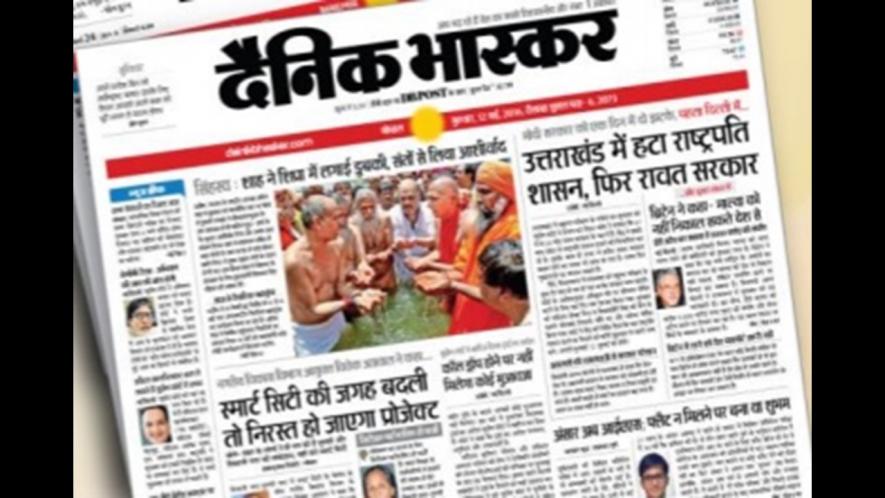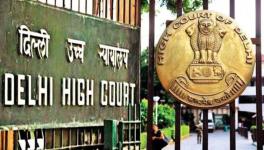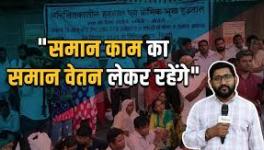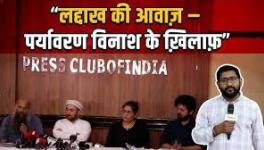Delhi HC Ruling on Dainik Bhaskar Injunction Case is a Win for the Media

It was a peculiar case of one media house firing a salvo to silence another media house. The widely-read Hindi daily Dainik Bhaskar tried to muzzle Cobrapost’s voice by seeking an injunction against the latter’s airing of a sting operation video. The video, which showed employees from the higher management of Dainik Bhaskar and other media outlets agreeing to publish manufactured, fake news to ratchet up Hindutva sentiments among readers and viewers over a wide spectrum, was to be shown in a presser at the Press Club in Delhi. But, the presser had to be cancelled at the last moment because a single-judge bench of the Delhi High court passed an order imposing a complete gag on the airing and dissemination of the video.
Now, on September 28, a division bench comprising Justices S Ravindra Bhat and A K Chawla, stoutly rejected the May 24 gag order, and directed a fresh hearing. The bench has delivered a ruling which should be counted as a significant victory for media houses battling big entities in their bid to protect their right to freedom of expression. The bench held that “[a]n unreasoned order granting ex-parte injunction for the entire duration of the suit, is impermissible”.
What the judges said about what conduct is expected from media houses facing public scrutiny needs to be reproduced in full here:
"The members of the public and citizens of this country expect news and fair comment as to whether a public institution – including a media house or journal (which cannot claim any exemption from being public institutions as they are the medium through which information is disseminated, and are one of the pillars of democracy) functions properly. In case there are allegations which result in controversies as to the reliability of the news which one or the other disseminates to the public, that too is a matter of public debate.
Unless it is demonstrated at the threshold that the offending content is malicious or palpably false, an injunction and that too an ex-parte one, without recording any reasons should not be given. Democracy presupposes robustness in debates, which often turns the spotlight on public figures and public institutions – like media houses, journals and editors. If courts are to routinely stifle debate, what cannot be done by law by the State can be achieved indirectly without satisfying exacting constitutional standards that permit infractions on the valuable right to freedom of speech."
It is necessary to not only exult at the court’s ruling, but also examine the reasoning the judges adopted, so that in future, embattled media houses can also benefit from the same.
Facts, in brief
The case is about Cobrapost's sting Operation 136: Part 2. In Part 1 of the sting operation, the website purportedly showed how a section of Indian media houses agreed to run a pro-Hindutva campaign in exchange for money. Here, '136' refers to India's dismal performance on the global press freedom index. A total of 16 news organisations were stung including India TV, Dainik Jagran, Hindi Khabar, SAB TV, DNA (Daily News and Analysis), Amar Ujala, Punjab Kesari, ScoopWhoop and Rediff.com.
In the run-up to the release of Part 2 of the sting, Cobrapost said that the sting would have “some of the biggest names in the Indian media ready to peddle paid news”. It even sent emails to the heads of the respective media organisations so that it could not be accused of not giving the right of reply. But, Dainik Bhaskar decided to launch a pre-emptory strike against the airing of the sting, alleging that the said sting was being released with the sole intention of tarnishing its reputation. And, with the aid of a battery of lawyers, managed to secure an injunction against the release of the sting video in any form, over any medium, till the case was finally disposed of.
Bar on indiscriminate injunctions on publication
The division bench relied primarily on the 1891 case of Bonnard v Perryman in which in the Court of Appeals in Britain, a three-judge bench of the court led by Lord Coleridge had held that in order to grant a temporary injunction against publication should be granted only when the court is satisfied that the respondent in the defamation suit would not be able to prove that the contents of the publication were not prima facie defamatory. Where the respondent contends that the words complained of are true, and swears that she will plead and seek to prove the defence of justification, the court should not grant an interlocutory injunction unless, exceptionally, it is satisfied that the defence is one which cannot succeed. The plaintiff must demonstrate that “it is clear that (the) alleged libel is untrue.”
What the court does next is more remarkable. In the Bonnard case, which was decided 127 years ago, the context was limited to print publications only. Dainik Bhaskar claimed that because of the power of electronic media and internet to reach a wide section of the population, the rule in the Bonnard case should not be applied in the present case. However, the court refused to accept this contention, and relied on its December 2017 judgement in the Shashi Tharoor case to hold that the Bonnard principle would apply to digital publications also.
Raising the threshold for prior restraint
The single-judge bench of Justice Mehta had granted the ex parte injunction – that is, after hearing only one side (Dainik Bhaskar) – without giving Cobrapost an opportunity to present its case. Moreover, the judge had not gone into the merits of the case – whether the sting video was really defamatory or malicious. This, the division bench held, “is clearly impermissible”.
Quoting approvingly the Australian High Court’s judgement in Australian Broadcasting Corporation v O’Neill (2006), the court said that “the alleged defamation should be restrained in exceptional cases, only in the rarest and clearest of cases”, and “the burden of proof is on the plaintiff (the person pleading for the restraint order) to demonstrate that the material complaint was manifestly defamatory”.
If courts unwittingly and liberally grant injunctions based on complaints saying that particular news items are controversial, or merely on the plea that they are defamatory (without concrete proof being provided to buttress this allegation), that would stifle public debate, which would be inimical to democracy, the court held.
Though the judges did not explicitly say so, it could be said that by laying down the standard of proving manifest defamation, they have inched closer to accepting the standard laid down by the US Supreme Court in the case of New York Times v Sullivan (1964), which mandated that actual malice must be proved before the court grants a plea of prior restraint. This should be noted and praised, especially when many media houses are besieged by cases where ex parte injunctions have been granted against them on the plea by the powerful.
Saurav is an independent journalist based out of Delhi, and specialising in reporting on legal, human rights and gender issues. He earlier used to teach media law and jurisprudence in Bombay and Pune. He tweets @SauravDatta29.
Get the latest reports & analysis with people's perspective on Protests, movements & deep analytical videos, discussions of the current affairs in your Telegram app. Subscribe to NewsClick's Telegram channel & get Real-Time updates on stories, as they get published on our website.
























